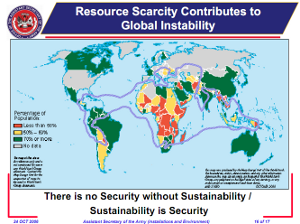The Truth About the Truth Commission
by Anthea Jeffery
Foreword by John Kane-Berman,
SA Inst. of Race Relations (SAIRR)
Johannesburg, 1999
by Anthea Jeffery
Foreword by John Kane-Berman,
SA Inst. of Race Relations (SAIRR)
Johannesburg, 1999
IV. Publication Of The Current TRC Report
On 29th October 1998 the TRC published a five-volume report running to some 3 500 pages. It found the former National Party (NP) government-as well as the Inkatha Freedom Party (IFP)-predominantly accountable for the thousands of gross violations of human rights committed in the mandate period. The Pan-Africanist Congress (PAC) was held accountable for targeting civilians primarily and thereby infringing international humanitarian law. The African National Congress (ANC), and the former United Democratic Front (UDF) were also found accountable for violations-albeit in far fewer instances and in significantly lesser measure. (See The TRC's main findings in the Appendix.)
These findings are not legal judgements and do not establish culpability under criminal law. They are damning, nevertheless, of the organisations and individuals held morally or politically accountable for crimes of abduction, torture, and politically motivated murder. They are also already playing a key part in shaping public perceptions of the conflict. In the future, they are likely to do so even more-especially as individual recollection fades and the TRC's report becomes the main source of information and interpretation in this regard.
Extensive media coverage of the TRC's report has helped to spread its message far and wide. Most of this coverage has taken the commission's findings at face value. Little or no effort has been made to evaluate either the quality of the evidence on which the TRC relied, or the adequacy of its assessment of this testimony. Such evaluation is vitally important, however. If the TRC's report is to become seminal to the country's understanding of political conflict, it must be clear that the report merits this stature.
The commission itself recognised the vital importance of its methodology. 'Its integrity,' it stated, 'was dependent as much on its process or methodology as on its actual findings.' An assessment of its process and methodology is accordingly the primary subject of this study.
In the course of such assessment, various inquiries are germane. The commission's founding legislation required that it provide a factual, comprehensive, and even-handed account of the gross violations committed on all sides in the course of the conflicts of the past. This account, moreover, was to place the violations that had occurred in their full and proper context, by explaining, among other things, their antecedent factors and the motives of their perpetrators. The statute itself makes clear, thus, the criteria by which the TRC's report should be evaluated. The questions that must be asked include the following:
- how factual was the evidence?
- how comprehensive was it?
- how objectively was it compiled and analysed?
- how well was it contextualised?
A further issue is how adequately the commission assessed the evidence before it. In this regard, it is important to remember that the TRC-though not a court of law-was nevertheless a statutory commission of inquiry. This meant, as noted by the commission in its report, that it was 'a legal institution with the responsibility for making defensible findings according to established legal principles'. These findings, the TRC also acknowledged, had to be made on a balance of probabilities-the standard of proof applicable in civil litigation. This gives rise to two further questions:
- were established legal principles applied?
- were the probabilities properly assessed?
[I] Foreword [II] Overview [III] Introduction [IV] Publication Of The Current TRC Report [V] The Need For Factual Evidence [VI] The Need For Comprehensive Findings [VII] The Need For Violations To Be Contextualised [VIII] The Need To Accord With Established Legal Principles [IX] Findings Based On A 'Balance Of Probabilities' [X] Appendix
» » » » [Truth About Truth Commission (PDF)]







No comments:
Post a Comment